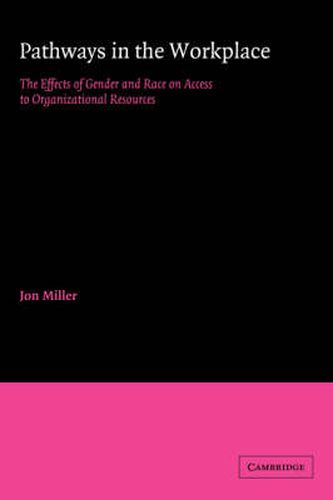Readings Newsletter
Become a Readings Member to make your shopping experience even easier.
Sign in or sign up for free!
You’re not far away from qualifying for FREE standard shipping within Australia
You’ve qualified for FREE standard shipping within Australia
The cart is loading…






Rationalistic theories of the workplace and the claims typically made by organizations stress that an individual’s access to the resources and advantages of an organization are determined by his or her qualifications and contributions to the collective enterprise, and that the payoffs for effort are essentially the same for all doing similar work. However, as Jon Miller shows in this book, negotiating for workplace rewards is actually far more complicated than this model allows, and he demonstrated that access to networks of organizational communication is in fact fundamentally influenced by race and gender. Comparing patterns of access to informal colleague networks and relations to the decision-making apparatus for white and non-white men and women in American public service organizations, he shows that only white males experienced a fairly close correspondence between their bureaucratic ‘investments’ and their workplace rewards.
$9.00 standard shipping within Australia
FREE standard shipping within Australia for orders over $100.00
Express & International shipping calculated at checkout
Stock availability can be subject to change without notice. We recommend calling the shop or contacting our online team to check availability of low stock items. Please see our Shopping Online page for more details.
Rationalistic theories of the workplace and the claims typically made by organizations stress that an individual’s access to the resources and advantages of an organization are determined by his or her qualifications and contributions to the collective enterprise, and that the payoffs for effort are essentially the same for all doing similar work. However, as Jon Miller shows in this book, negotiating for workplace rewards is actually far more complicated than this model allows, and he demonstrated that access to networks of organizational communication is in fact fundamentally influenced by race and gender. Comparing patterns of access to informal colleague networks and relations to the decision-making apparatus for white and non-white men and women in American public service organizations, he shows that only white males experienced a fairly close correspondence between their bureaucratic ‘investments’ and their workplace rewards.